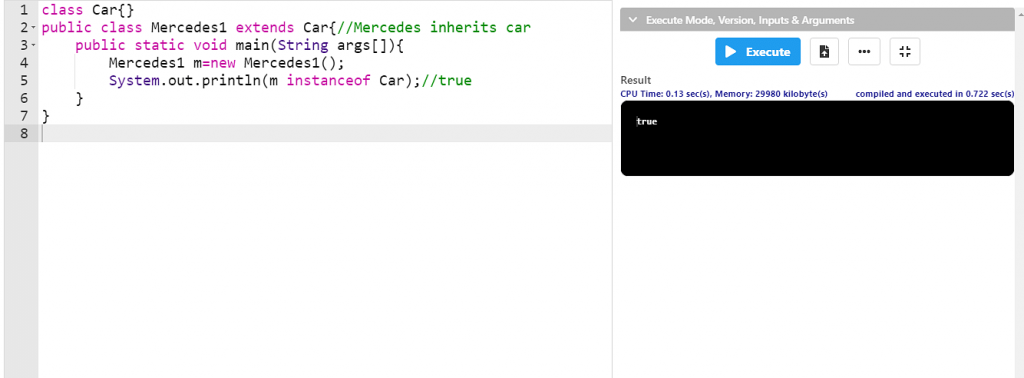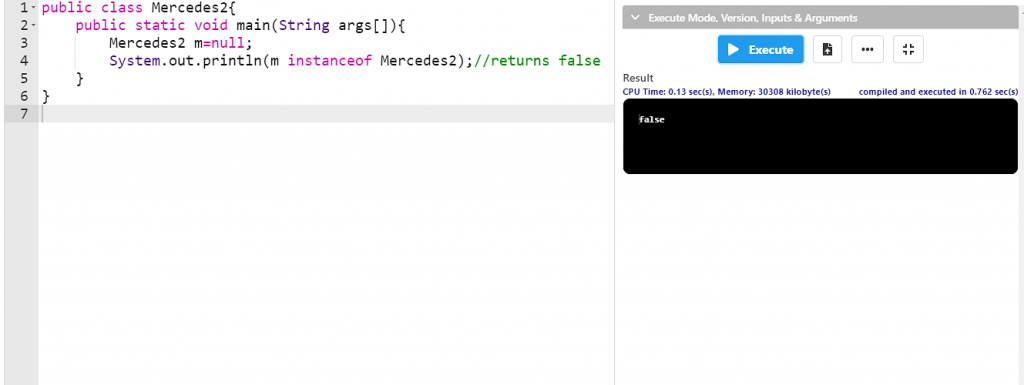Object-Oriented Programming, also known as OOP, is a crucial programming paradigm, especially for aspiring software developers. OOPs work on several concepts like classes, objects, abstraction, polymorphism, abstraction, and inheritance. The idea is to bind data and different functions together to operate on it and abstract it from the end-user.
Check out our free courses to get an edge over the competition.
Different object-oriented programming languages like Objective C, Java, Python, C++, and more operate on the core principles of OOPs. Apart from bundling data and functions together, the OOPs paradigm also allows developers the following clear benefits:
- OOPs, allow you to develop programs and applications using standard modules that communicate with one another. It eliminates the need to write the entire code from scratch, saving time.
- Using OOPs concepts, you can break your entire program into smaller, bite-sized chunks of modules that independently solve different problems and communicate with one another. That way, if one module goes bad, you can debug that part of the code, while the remaining part will keep executing normally.
- OOPs come with much more productivity within lesser time and development costs.
- Applications and tools developed using the OOPs paradigm are highly scalable and can be upgraded from small to large systems without much difficulty.
Learn Software Development Courses online from the World’s top Universities. Earn Executive PG Programs, Advanced Certificate Programs or Masters Programs to fast-track your career.
When working with OOPs, instanceof is a concept one must be aware of to ensure a smooth learning experience.
The syntax of instanceof is -> <object_name> instanceof <class_name>
Instanceof is used to verify if a particular object is an instance in Java of a class, a subclass, or an interface. Essentially, you do it using an object whenever you instantiate a class. So, at a later stage, if you wish to find out the belongingness of an object, you can use the instanceof operator. It can also be referred to as a comparison operator because it compares the type with the instance. This operator returns either true or false values, and it is most commonly used in situations where you want to:
- Check whether any variable contains the instance of an object or not.
- Check if typecasting is valid or not.
- Downcasting as and when required.
Check out upGrad’s Advanced Certification in DevOps
Let’s try to understand instance of by looking at some examples and their execution!
Explore our Popular Software Engineering Courses
Examples of instance of using Java
Now that you have understood the basics of instance of operator and why it is used, let’s look at some examples to understand how it works better.
Check the code snippet in the screenshot below:

Here we are using the instance of operator to check whether the object ‘e’ is an instance in Java of Example1 class or not. You can see for yourself that object ‘e’ is present in our required class, which is why our program’s output returns true. Implying that object ‘e’ is an instance of Example1 class.
Let’s now look at some more specific examples of using instance of in Java to understand the different scenarios and situations wherein you can use the instance of operator.
Check out upGrad’s Advanced Certification in Cyber Security
We know that any subclass, by default, extends the parent class. Extending that logic, any object referenced in the subclass will also be an instance of the parent class through the concept of inheritance. Let’s see this in action using the instance of operator:

In the above example, the Mercedes class is an extension of the Car class, and as a result, Car becomes the parent class, whereas Mercedes is the child class. We are essentially creating a child class object and checking whether or not it is an instance of the parent class. As you can see, our program returns true as the output, which means that the child’s instance in Java is the instance of the parent class too.
In-Demand Software Development Skills
Here is another example of instance of in Java where we use parent classes, subclasses, and objects, to see how the operator works and brings us the result:

As you can see in the output section, we get a clear hierarchy of objects and get an idea of which object is an instance of which class by using our instance of operator.
Instance of operator on a variable with Null value
So far, we have applied this operator on objects that were not null and got either true or false depending on whether they were the instance of the required class. But what happens if we apply the instance of operator to a variable containing a null value? Check the piece of code below:
The program returns false as a result which implies applying instanceof operator to objects containing null values will return false => these objects will not be an instance of the class.
Read our Popular Articles related to Software Development
| Why Learn to Code? How Learn to Code? | How to Install Specific Version of NPM Package? | Types of Inheritance in C++ What Should You Know? |

Instance of operators with different parent-child references
If we apply the instanceof operator on the parent object, it returns false. However, if we use a parent reference referring to a child, the result returned is true. Check out the below screenshot where instanceof has been applied in both these scenarios:

Instance of Java operator for downcasting
Downcasting, without a doubt, is one of the most important applications of the instanceof operator in Java. Downcasting refers to using a subclass to refer to the parent object. In simpler terms, downcasting is typecasting a parent’s object to a child’s object. Although the instanceof operator is not necessary to perform downcasting, using instanceof operator for downcasting ensures zero non-runtime or compile-time errors. Here is a code snippet where we perform downcasting in Java using the instanceof operator.

In conclusion
The world of object-oriented programming and software development is full of insights, learnings, and new experiences. Instanceof operator is just one of the many operators you need to master to become comfortable with object-oriented programming.
We hope this article helped you understand the working of instanceof more lucidly. We suggest you take this hands-on by manually coding all the examples and playing around with them for different results, ensuring a better practical experience than theory.
At upGrad, we understand the importance of practical, hands-on learning – especially when it comes to software development. As a result, our courses and training initiatives have practicality at their very core. One such initiative is Full Stack Development Bootcamp which will help you develop all the relevant skills required to excel in full-stack development.
Check out the course page and get yourself enrolled soon!







































![Scrum Master Salary in India: For Freshers & Experienced [2023]](/__khugblog-next/image/?url=https%3A%2F%2Fd14b9ctw0m6fid.cloudfront.net%2Fugblog%2Fwp-content%2Fuploads%2F2020%2F05%2F486.png&w=3840&q=75)
![SDE Developer Salary in India: For Freshers & Experienced [2024]](/__khugblog-next/image/?url=https%3A%2F%2Fd14b9ctw0m6fid.cloudfront.net%2Fugblog%2Fwp-content%2Fuploads%2F2020%2F05%2F482-1.png&w=3840&q=75)





